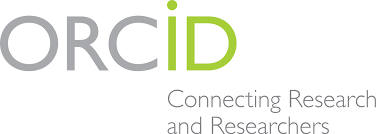India's Unani System of Medicine: An Age-Old Healing Tradition
Review article
DOI:
https://doi.org/10.21276/pt.2025.v2.i2.2Keywords:
Unani medicine, Ilm-ul-Advia, traditional healing, humoral theory, AYUSHAbstract
Unani medicine entrenched in Greco-Arabic civilisations and deeply rooted in Indian cultural and medical antiquity, characterizes all-inclusive and adapted method to healthcare. Familiarized to India in the 8th century and utilized during the Mughal phase, Unani has progressed into a noteworthy constituent of India's diverse medical system. This old-style system accentuates humoral balance, lifestyle alteration, and natural medications, positioning closely with modern ethics of precautionary and integrative medicine. Nowadays, Unani relishes official acknowledgement under the AYUSH scheme and offers economical healthcare solutions, particularly in underserved societies. Despite its healing significance and historical deepness, Unani faces challenges linked to consciousness, calibration, and incorporation with modern medicine. This article focuses the historical development, fundamental principles, existing applications, and forthcoming potential of Unani medicine in India, contending for its revival through general awareness, committed research, dedicated education, funding and policy support.
References
Magner LN. A History of Medicine. Dekker, New York, 1992.
Freeman L. Mosby’s Complementary & Alternative Medicine, a Research-Based Approach, 2nd edition. Mosby, Philadelphia, 2001.
Bhikha R. 4 Temperaments, 6 Lifestyle Factors. Ibn Sina Institute of Tibb, South Africa, 2006.
Bhikha R, Glynn JP. Tibb: The Science of Medicine and the Art of Cure. Ibn Sina Institute of Tibb, South Africa, 2007.
Nasr SH. Science and Civilization in Islam. Harvard University Press. 2006. Pp. 1-386
Ministry of AYUSH. (2022). Unani System of Medicine. Government of India. 2022. https://www.ayush.gov.in
NIUM Bengaluru. National Institute of Unani Medicine – Institutional Overview. 2023. https://nium.in
Central Council for Research in Unani Medicine (CCRUM). (2023). Annual Report 2022-23. Ministry of AYUSH, Government of India. 2023. https://ccrum.res.in
Iva Lloyd.Traditional and complementary systems of medicine (Chapter 2), Editor(s): Iva Lloyd, The Energetics of Health, Churchill Livingstone,2009; 13-27. https://doi.org/10.1016/B978-0-443-06955-0.00002-6.
Ahmad S, Khan MA. Unani Medicine in India: Its Origin and Contemporary Status. Journal of Ethnopharmacology, 2019; 238: 111834. https://doi.org/10.1016/j.jep.2019.111834
Khan F, Siddiqui A. Overview: Unani-Dieto and pharmacotherapy as immuno modulator and prophylaxis for Covid-19. Int J Unani Integ Med. 2020; 4(2):20-29. https://doi.org/10.33545/2616454X.2020.v4.i2a.129
Jahan N, Akhtar J, Khan AA. Prevention and management of lifestyle diseases through unani system of medicine. Int J Unani Integ Med. 2020;4(2):01-04. https://doi.org/10.33545/2616454X.2020.v4.i2a.125
Downloads
Published
Data Availability Statement
Not Applicable
Issue
Section
License
Copyright (c) 2025 PhytoTalks

This work is licensed under a Creative Commons Attribution-NonCommercial 4.0 International License.
Copyright and License Terms
Authors who publish with this journal agree to the following terms:
- Authors retain the copyright to their work and grant the journal the right of first publication. The work is simultaneously licensed under a Creative Commons Attribution License permitting others to share it with proper acknowledgement of the authorship and its original publication in this journal.
- Authors may enter into additional, non-exclusive agreements for distributing the published version of their work (e.g., depositing it in an institutional repository or including it in a book), provided they acknowledge that the work was first published in this journal.
Open Access Policy
License
PhytoTalks is an open-access journal, allowing readers to access all published articles without registration. All articles are distributed under the Creative Commons Attribution License (CC Attribution 4.0), which permits unrestricted use, distribution, and reproduction in any medium, provided the original author and source are properly credited. (https://creativecommons.org/licenses/by/4.0/).
License summary:
This license allows others to:
-
Share — copy and redistribute the material in any medium or format
-
Adapt — remix, transform, and build upon the material for any purpose, even commercially
Under the following terms: -
Attribution — appropriate credit must be given, a link to the license provided, and indication if changes were made.
Author Warranties
By submitting a manuscript to PhytoTalks, authors confirm that:
-
The work is original and does not infringe any copyright, trademark, patent, or other rights of third parties.
-
The work has not been published elsewhere (except as a preprint) and is not under consideration by another publication.
-
All necessary permissions for any third-party materials used in the manuscript have been obtained.
Citation Policy
When using or citing articles from PhytoTalks, proper attribution must be given to the original authors and the source, including a DOI link where available.


![Announcement: Special Conference Issue of Phytotalks We are pleased to announce that Phytotalks will publish a special issue featuring select peer-reviewed papers from the Third International Conference on Plant Functional Biology, an esteemed international gathering of experts in Plant Science]. This special issue will highlight cutting-edge research and innovative developments presented at the conference, offering our readers valuable insights into the latest advancements in the field. Stay tuned for this upcoming edition, which reflects our continued commitment to showcasing high-quality, impactful research.](https://phytotalks.com/public/site/images/afrozalam/img-20250701-wa0010.jpg)



































